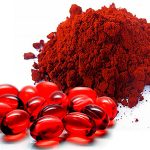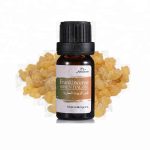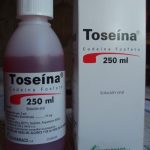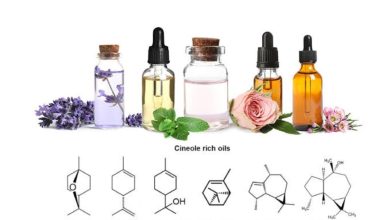Milk Thistle: Uses, Benefits, Dosage, Dangers, Warnings
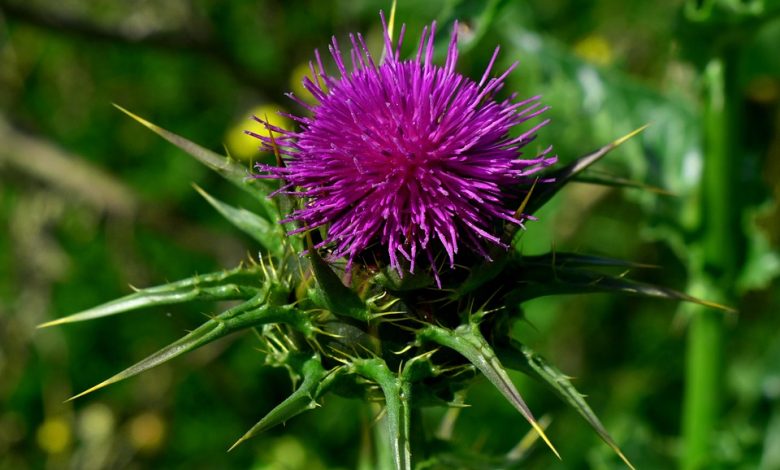
Milk thistle, also known as Silybum marianum, is a plant native to Europe, Asia, and North Africa that has been used for centuries as a natural remedy for various ailments. The plant contains a compound called silymarin, which is believed to have antioxidant and anti-inflammatory properties.
Milk thistle is most commonly used to support liver health. Silymarin has been shown to protect liver cells from damage caused by toxins and other harmful substances, as well as stimulate the regeneration of liver tissue. It may also help to reduce inflammation in the liver and improve overall liver function. As a result, milk thistle supplements are often recommended for individuals with liver conditions like hepatitis, cirrhosis, or non-alcoholic fatty liver disease.
In addition to liver health, milk thistle has also been studied for its potential benefits in other areas. For example, some research suggests that it may help to lower cholesterol levels, reduce insulin resistance, and improve symptoms of certain inflammatory conditions like osteoarthritis. However, more research is needed to confirm these potential benefits and determine the most effective dosages and formulations of milk thistle.
Milk thistle supplements are available in various forms, including capsules, tablets, and liquid extracts. They are generally considered safe when taken in recommended doses.
What does milk thistle do for the body?
Milk thistle is native to the Mediterranean region and has been used for centuries as a natural remedy for a variety of health conditions. The active ingredient in milk thistle is a flavonoid called silymarin, which is believed to have antioxidant, anti-inflammatory, and hepatoprotective (liver-protective) effects.
Here are some potential benefits of milk thistle:
1. Liver health: Milk thistle is most commonly used for its liver-protective properties. Silymarin has been shown to help protect the liver from damage caused by toxins, such as alcohol, drugs, and environmental pollutants.
2. Gallbladder health: Milk thistle may also be beneficial for improving gallbladder function and reducing symptoms of gallbladder disease.
3. Lowering cholesterol: Some research suggests that milk thistle may help lower cholesterol levels in the blood, although more studies are needed to confirm this effect.
4. Anti-inflammatory effects: Silymarin has been shown to have anti-inflammatory effects, which may be helpful in reducing inflammation and improving symptoms in conditions such as arthritis.
5. Antioxidant effects: Milk thistle has antioxidant properties, which may help protect the body against damage caused by free radicals and oxidative stress.
It is important to note that more research is needed to fully understand the potential benefits of milk thistle, and it should not be used as a substitute for medical treatment or advice. Additionally, if you are considering taking milk thistle for a specific health condition or in combination with other medications or supplements, it is important to speak with a healthcare provider first to determine the appropriate dosage and any potential risks or interactions.
Milk Thistle Dosage
The appropriate dosage of milk thistle can vary depending on a number of factors, including the individual’s age, health status, and the reason for use. There is no standard recommended dosage for milk thistle, as research on its effectiveness and safety is limited.
However, typical doses used in clinical trials have ranged from 140 mg to 800 mg of standardized milk thistle extract per day, divided into two or three doses. It is important to choose a milk thistle supplement that is standardized to contain at least 70% silymarin, which is the active ingredient believed to be responsible for its health benefits.
It is always important to follow the dosing instructions on the product label or as recommended by a healthcare provider. Additionally, if you are considering taking milk thistle for a specific health condition or in combination with other medications or supplements, it is important to speak with a healthcare provider first to determine the appropriate dosage and any potential risks or interactions.
When to take milk thistle morning or night?
There is no specific time of day that is best for taking milk thistle. It can be taken in the morning, afternoon, or evening, depending on what works best for you.
However, some people find it helpful to take milk thistle with a meal or snack, as this can help improve absorption and reduce the risk of gastrointestinal side effects like nausea or upset stomach.
It is always important to follow the dosing instructions on the product label or as recommended by a healthcare provider, as the optimal timing of milk thistle may vary depending on the individual’s health status and the reason for use.
Is it good to take milk thistle every day?
Milk thistle is generally considered safe for most people when taken as directed. It is a popular dietary supplement that is often taken daily as a natural remedy for liver health and other conditions.
However, as with any supplement or medication, it is important to follow the recommended dosage on the product label or as recommended by a healthcare provider. The optimal dosage of milk thistle may vary depending on the individual’s health status and the reason for use.
While milk thistle is generally well-tolerated, some people may experience gastrointestinal side effects such as nausea, upset stomach, or diarrhea. In rare cases, allergic reactions may occur.
Who should not take milk thistle?
While milk thistle is generally considered safe for most people, there are some individuals who should avoid taking this supplement or speak with their healthcare provider before doing so. These include:
1. People who are allergic to plants in the same family as milk thistle, such as ragweed, daisies, or marigolds.
2. Women who are pregnant or breastfeeding, as the safety of milk thistle during pregnancy and breastfeeding has not been established.
3. People with a history of hormone-sensitive cancers, such as breast, ovarian, or uterine cancer, as milk thistle may have estrogen-like effects.
4. People taking certain medications, including blood-thinning drugs, diabetes medications, and some antidepressants, as milk thistle may interact with these medications.
5. People with liver disease or other medical conditions, as the safety and effectiveness of milk thistle in these populations have not been fully established.
Does milk thistle cause cancer?
There is currently no evidence to suggest that milk thistle causes cancer. In fact, some studies suggest that milk thistle may have potential anti-cancer properties due to its antioxidant and anti-inflammatory effects. However, more research is needed to confirm these potential benefits.
Milk thistle is generally considered safe when taken in recommended doses. However, like any supplement, it can cause side effects in some individuals. These may include gastrointestinal upset, headache, skin reactions, or allergic reactions. Additionally, milk thistle may interact with certain medications, including blood thinners, antipsychotics, and some cancer medications. It is important to speak with a healthcare provider before taking milk thistle or any other supplement, particularly if you have an existing medical condition or are taking prescription medications.
Dangers Of Milk Thistle
While milk thistle is generally considered safe when taken in recommended doses, there are some potential risks and side effects associated with its use. Here are some of the potential dangers of milk thistle:
1. Allergic reactions: Milk thistle can cause allergic reactions in some individuals, particularly those with allergies to plants in the same family (such as ragweed, marigolds, or daisies).
2. Gastrointestinal upset: Some people may experience nausea, diarrhea, or other gastrointestinal symptoms when taking milk thistle.
3. Interactions with medications: Milk thistle can interact with certain medications, including blood thinners, antipsychotics, and some cancer medications. It may also interact with herbal supplements like echinacea and garlic.
4. Hormonal effects: Milk thistle can have estrogenic effects, which may be a concern for individuals with hormone-sensitive conditions like breast cancer or endometriosis.
5. Blood sugar effects: Milk thistle may lower blood sugar levels, which could be a concern for individuals with diabetes or hypoglycemia.
6. Pregnancy and breastfeeding: There is limited research on the safety of milk thistle during pregnancy or breastfeeding, so it is generally recommended to avoid its use during these times.
7. Contamination: Some milk thistle supplements may be contaminated with heavy metals or other toxins, particularly if they are sourced from regions with poor environmental regulations.
It is important to speak with a healthcare provider before taking milk thistle or any other supplement, particularly if you have an existing medical condition or are taking prescription medications.

